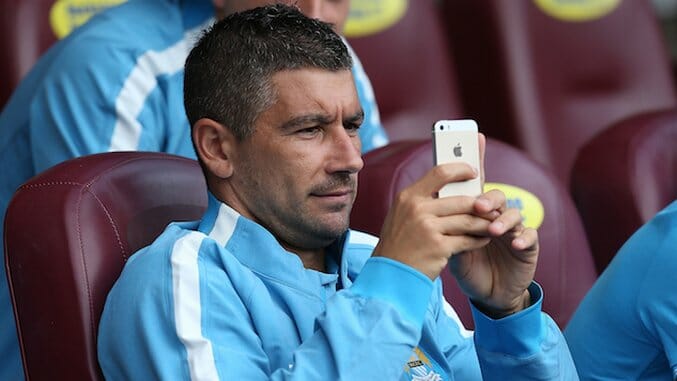Why Pep Guardiola was Right to Ban Wifi at Manchester City’s Training Ground
Photo by Pete Norton/Getty
Pep Guardiola has banned Wifi at Manchester City’s training ground, Sergio Aguero confirmed yesterday. Speaking with reporters, he said the move came after the City manager caught a player checking his phone while receiving a massage:
‘In this place I am preparing the orange juice, and they (team-mates) were asking if the internet was working. “I think it’s broken,” I said. I thought they were messing with me, but it was right.
‘It seems that one time, he entered the massage rooms and saw one of my team-mates, I don’t know who it was, relaxing with his phone and, I don’t know, maybe he did not like it.
The reason, according to The Daily Mail at least, comes down to camaraderie:
Guardiola made the adjustment to foster team spirit, hoping his squad would concentrate on communicating with each other rather than being glued to their mobiles at the City Football Academy.
This is about the time where one would comment on these new age managers with their new fangled ideas, but banning internet access isn’t on quite the same level as introducing a healthy diet or banning all night pub crawls in the middle of a football season.
-

-

-

-

-

-

-

-

-

-

-

-

-

-

-

-

-

-

-

-

-

-

-

-

-

-

-

-

-

-

-

-

-

-

-

-

-

-

-

-








































